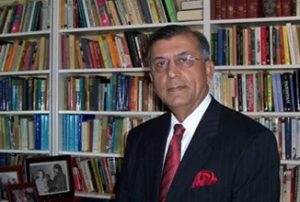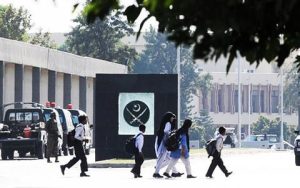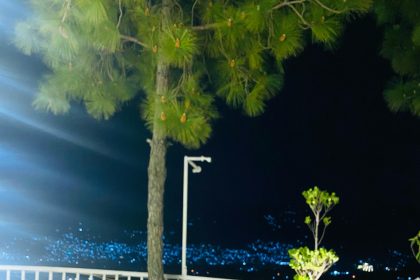“Good friends, good books, and a sleepy conscience: This is the ideal life.”
– Mark Twain
Throughout my life, I have been surrounded by men who proudly wear their khaki uniforms, which feature an insignia of two crossed swords on a green background on their left sleeves. History has always intrigued me, especially the history of Pakistan and its army. I have read some good books on the history of Pakistan, but I never found any satisfactory text related to the Pakistan Army until I read Crossed Swords: Pakistan, Its Army, and the Wars Within; Second Edition.
The book is written by Shuja Nawaz, who also belongs to a military family in Pakistan, with his brother having served as the Chief of Army Staff of the Pakistan Army. Shuja utilized his background effectively while writing this book, comprising archival materials from the GHQ, Rawalpindi. This kind of access to confidential archives is not available to ordinary researchers. I must say Shuja kept his personal biases aside while writing this book, which is a hard thing to do when something is related to your family.

Crossed Swords is a voluminous study of the Pakistan Army, comprising 18 chapters, three appendices, and a total of 621 pages. Shuja has penned the history of the Pakistan Army from the pre-partition phase to the war on terror phase, which is, to some extent, still ongoing.
Shuja has written in detail about the institution, which is, to some extent, insecure of journalists and writers. The book’s first edition was published in 2008, and the second edition was published in 2017. The book is not solely focused on the Pakistan Army, but also gives an insight into the political and constitutional developments that are part of the country’s history. From the partition of Pakistan to the Kashmir issue and the entry of Pakistan and the Indian Army into the battle of Kashmir, which was also the first war between India and Pakistan in 1948, he has covered these aspects thoroughly. He has also penned down the external and internal dynamics that affected the army. He writes that, due to the dearth of effective civilian leadership, the army got a taste of indulging in civilian affairs from the start. He discusses the events that led to the first martial law in detail.

Shuja has discussed the events of the wars that Pakistan fought with India and the consequences that followed. He has also discussed the miscalculations and poor planning in the upper echelons of army leadership in both countries, especially Pakistan. Shuja has written in detail about the events that led to the 1971 debacle and how it could have been prevented by the junta at that time. Beyond all this, the book provides useful information regarding why certain decisions were made at that time and the specific reasons for them. He has also written in detail about the differences that emerged between the civilian leaders and army chiefs. He has also discussed the wars within the army ranks on various issues. The book also discusses Pakistan’s relations with the USA, India, and Afghanistan. However, the book does not discuss in detail the relations with Afghanistan, but it is still worth a read. The book is also relevant for people who are interested in Pakistan’s history and politics.
Shuja also discusses the Islamization by Zia and the Afghan jihad, the remnants of which can be seen to this day in the form of terrorism and religious extremism. He also discusses the nuclear project of Pakistan, which was started by Zulfikar Ali Bhutto and finalized by the Nawaz Sharif government in 1998. He also grabs the reader’s attention to the failed Operation Khilafat, which was planned by Major General Zaheer ul Islam Abbasi and 40 other army officers. The aim was to capture the GHQ and declare Pakistan an orthodox Islamic state. This took place during the second term of Benazir’s administration.

I recommend this book to anyone interested in Pakistan’s affairs. It is quite lengthy, so readers can focus on the chapters that interest them the most. I also hope that this book is read by the future leadership of the country so that they can steer the country’s leadership in a better way.
















